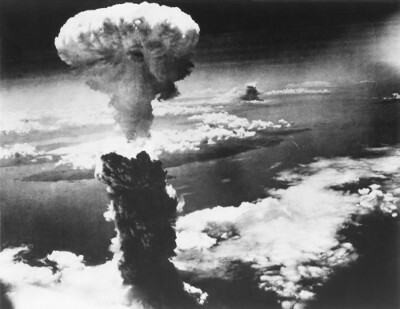O Brest-Litovsk Treaty, signed on March 3, 1918, in the homonymous city of Belarus (then part of the Russian Empire), sealed “peace” between Russia (already taken over by the revolutionariesbolsheviks) and the central Empires against which he had entered the war, above all, Germany and Austria-Hungary.
treaty context
It is known that the First World War it began in July 1914 with the confrontation of two main European imperialist nuclei: on the one hand, the German, with Germany and Austria-Hungary, and on the other, the Slav, with Russia and Serbia. The allies on each side were quick to go into combat. One of the German strategies used against Russia in the war was to sponsor the bolshevik communist revolution, which took effect in October 1917, so that the tsar's empire NicholasII if it wore out inwardly, which proved to be quite effective.
Russia's exit from the war was one of the main prerogatives of the Bolsheviks, who repudiated nationalist and imperialist warfare and who planned another type of war, revolutionary and global, which, in theory, would take Europe by storm after World War I, since all the powers involved would be as weakened as the Russia. However, in early 1918, sealing a peace agreement with the central powers would enable the Bolsheviks to recover the economy and reshape the army.
Protagonism of Leon Trotsky
The person responsible for Russian Foreign Affairs after the revolution was LeonTrotsky, leader of the Red Army and one of the closest men to Lenin. Trotsky was one of the key players in negotiations with the central powers. Initially, the end of the conflict was proposed to all the powers involved, but there was no agreement. Thereafter, the Bolsheviks concentrated on the armistice only with the German powers, Germany and Austria-Hungary. Terms discussions were held in Brest-Litovsk. They accompanied Trotsky: Lev Kamenev, Anastasia A. Bitzenko, V.V. Lipskiy,FOR. Stuck, Adolff A. Ioffe and Lev M. Karakhan.
Negotiations with the German generals began as early as December 1917. According to historian Sean McMeekin, one of Trotsky's main goals was to try to get Germany into a situation of international political embarrassment, as it continued with its armies guarding positions in Russia - this neither formal army itself had most. McMeekin says that:
Do not stop now... There's more after the advertising ;)
Trotsky's theatrical performance in Brest-Litovsk then became part of his political legend. Subjecting his political opponents to endless speeches in which he accused them of “making him sick” with their imperialist greed and hypocrisy – the Russian stubborn insistence that the Germans simply admit they were "annexing" Russian territories instead of allowing satellites to carry out plebiscites to declare or not his “independence” was a jewel in particular – Trotsky gradually left his interlocutors completely out of the picture. of you. [1]
Despite gaining time and causing diplomatic embarrassment to the Germans, the Bolshevik delegation was unable to get the German army to abandon the posts on Russian territory. On the contrary, the agreement signed on March 3, 1918 provided for the annexation of vast Russian territories by the German Empire, in addition to compensation in wheat, which would be exported from Ukraine.
End of War and Attempted German Revolution
However, the winds of war changed after this treaty was signed. Germany and its allies were ostensibly crushed by England, France, the United States and the other countries that associated with them. Just as there was the Bolshevik strategy in Russia of taking advantage of the crisis caused by the war and laying the foundations for the communist revolution, the same was tried in Germany. THE turns onSpartacist, whose main leader was pinkLuxembourg, starred in this attempt, which soon proved to be frustrated.
GRADES
[1] MCMEEKIN, Sean. The Berlin-Baghdad Express: the Ottoman Empire and Germany's attempt to conquer world power. Trans. Maria Silva Mourão Netto. São Paulo: Globo, 2011. for. 368-9.
By Me. Cláudio Fernandes
Would you like to reference this text in a school or academic work? Look:
FERNANDES, Claudio. "Brest-Litovsk Treaty"; Brazil School. Available in: https://brasilescola.uol.com.br/historiag/tratado-brest-litovski.htm. Accessed on July 27, 2021.

